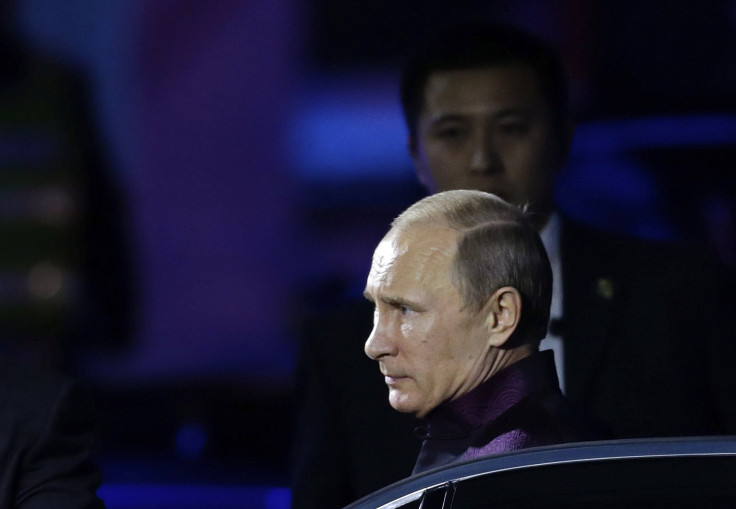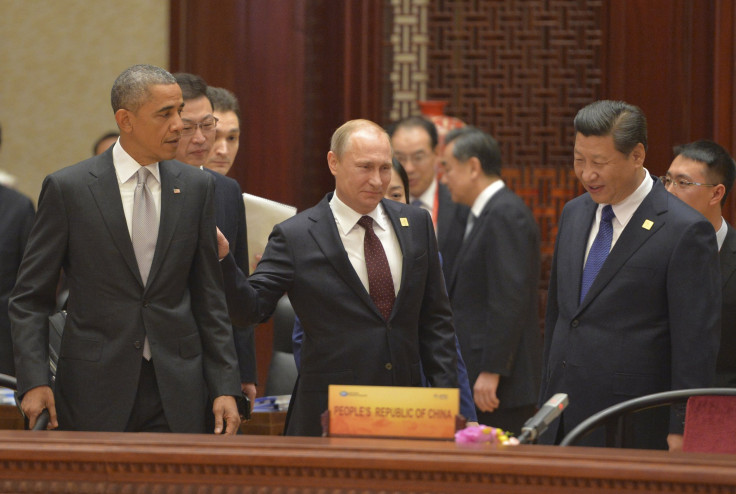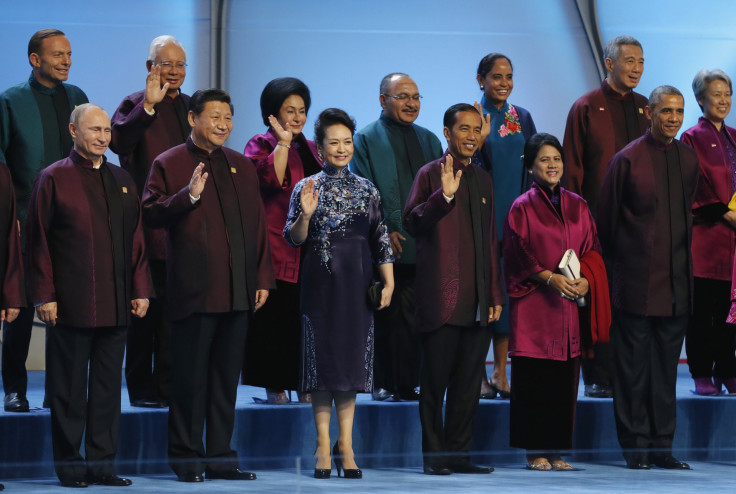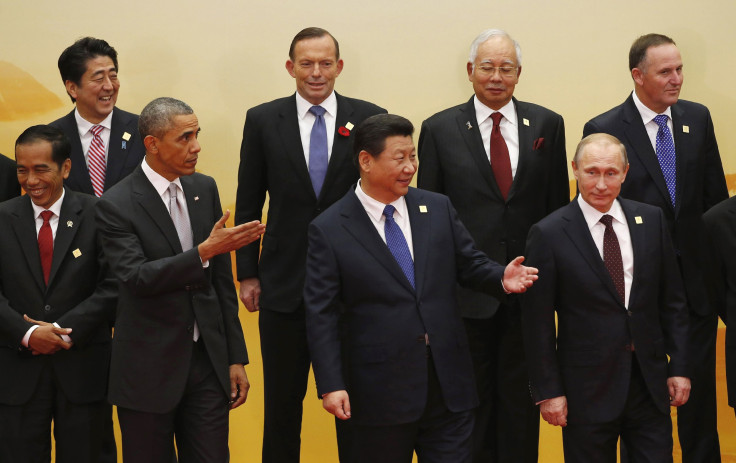Vladimir Putin Gets Cool Reception At APEC By Western Leaders

Russian President Vladimir Putin has had a long week already, and it's not over. He just finished the Asia Pacific Economic Conference (APEC) in Beijing and is heading to the G-20 summit in Brisbane, Australia, amid fresh NATO allegations that Russia is again moving troops and equipment into eastern Ukraine.
He was met with some cold looks from Western leaders in China and can expect the same in Australia this weekend. In addition, Putin also saw Western sanctions over his Ukraine initiatives curb the value of a major natural gas deal with China.
While Putin appeared confident and relaxed during the APEC, that apparent confidence did not strength his negotiations with China over a natural gas supply deal. With the Russian economy slowing to a near standstill, in large measure because of Western sanctions, China was in a far stronger negotiating position. Putin was forced, preliminarily, to agree to a comparatively modest deal, one worth an estimated $284 billion. That's far less than the $400 billion value of Russia's first natural gas supply deal with China, which was negotiated before Western sanctions had begun to hit Russia's economy.
“It’s certainly part of the Russian strategy to get out from under the sanctions, but I don’t think China is necessarily a good option,” said Jeffrey Mankoff, deputy director of the Russia and Eurasia Program at the Center for Strategic and International Studies. “There’s talk that Russia is trying to downplay their conflict of interests, but they’re there and downplaying them is having to swallow China’s interests on a lot of them.”
But when money wasn’t involved, Putin was as stalwart as ever.
For example, Australian Prime Minister Tony Abbott finally “shirtfronted” Putin at APEC over the downing of Flight MH17, in which 38 Australians perished. Shirtfronting is a term from Australian Rules Football, which means to hit another player extremely hard straight-on, and in October Abbott promised to shirtfront Putin over MH17.
During the APEC meeting Abbott told Putin that he wanted an apology and said he had evidence linking the missile that took down MH17 to the Russian military. Putin didn’t bite and the Russian government has refused to apologize.
“We totally refute the allegations and we want to commit to the full and impartial international investigation,” Alexander Odoevskiy, spokesman for the Russian Embassy in Canberra, Australia, said. “If the prime minister has, as he declares, any clear evidence, then he should bring it to the table. We haven’t seen it.”
Furthermore, Russia sent two warships and two support ships to sit in international waters off Australia ahead of this weekend’s G20 summit in Brisbane, Australia, in what appears to be a show of force. Australian authorities noted that Russia has done so for other international meetings.
Despite the increasingly icy relationship between U.S. President Barack Obama and Putin, the latter felt comfortable enough to give Obama a little pat on the arm as they walked into an APEC event over the weekend, showing confidence in the presence of perhaps his biggest rival. It didn’t appear to go over too well with Obama, who was largely avoiding Putin prior.

Putin also made sure to get a front-row spot, near the center, next to host Chinese President Xi Jinping for the major photo opportunities with the rest of the world leaders at the APEC meeting -- coincidentally right in front of Abbott, who was looking for a spot to stand before settling in behind Putin.


Putin heads into another round of awkward encounters and some protests in Brisbane this weekend. He’s expected to have an informal talk with Obama and will likely do the same with Abbott, who hosts the event.
Meanwhile, an emergency U.N. Security Council meeting over the recent NATO allegations of Russian movement in Ukraine on Wednesday is expected to produce little real consequences for Russia. However, it will again highlight the nation's alleged involvement in Ukraine.
“The best explanation I’ve heard for why Russia is acting [in the Ukraine] now is the coming of winter,” said Mankoff. “If the Russians are looking to change facts on the ground, they have to do that sooner than later. That seems to be the main driver, but doing this with the summits leaves Putin in a tough diplomatic position.”
© Copyright IBTimes 2025. All rights reserved.






















